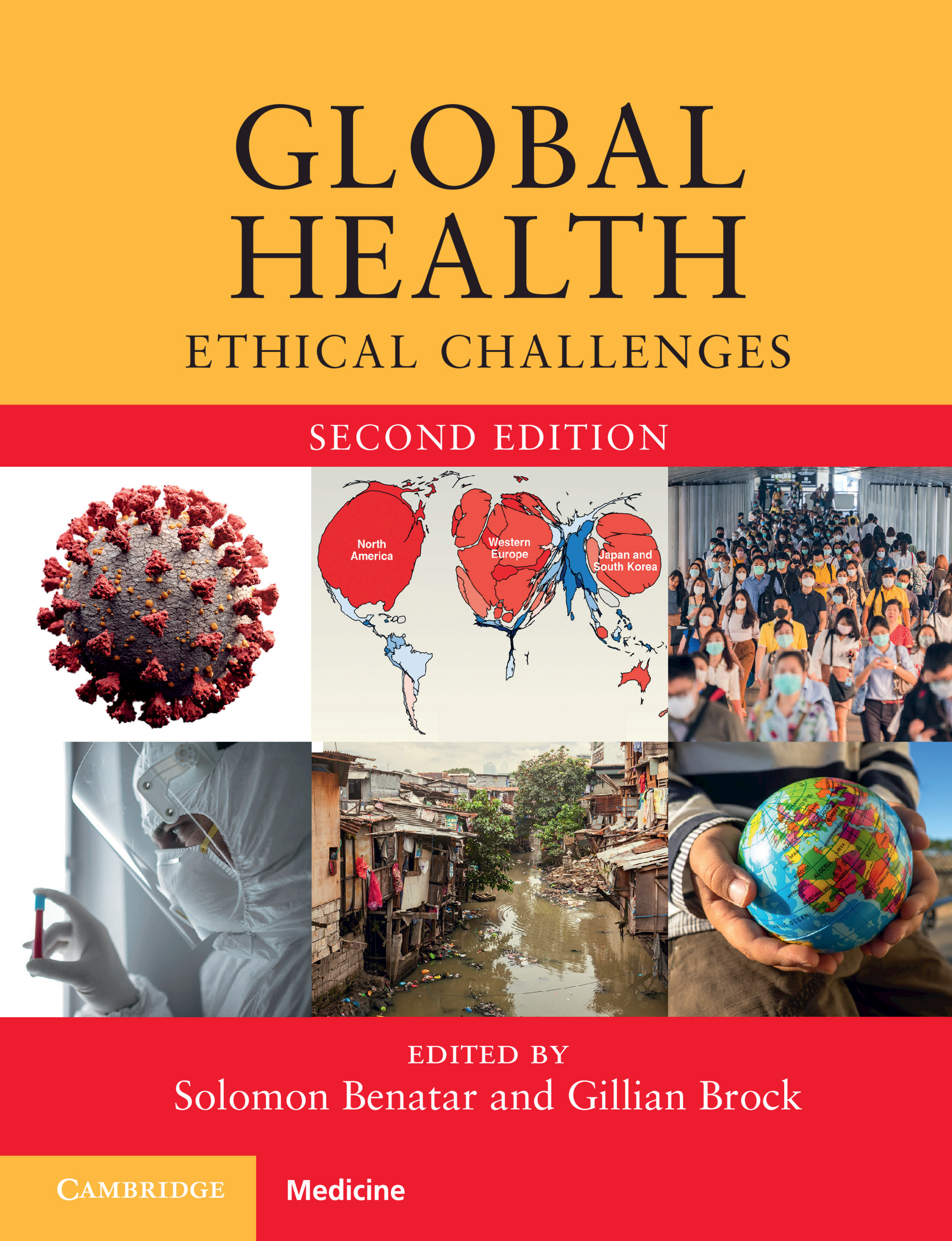Book contents
- Global Health
- Global Health
- Copyright page
- Contents
- Contributors
- Introduction
- Section 1 Global Health: Definitions and Descriptions
- Chapter 1 State of Global Health in a Radically Unequal World
- Chapter 2 Societal Determinants and Determination of Health
- Chapter 3 Strengthening the Global Response to Infectious Disease Threats in the Twenty-First Century, with a COVID-19 Epilogue
- Chapter 4 Gender Equality in Science, Medicine, and Global Health
- Chapter 5 Health Systems and Health and Healthcare Reform
- Section 2 Global Health Ethics, Responsibilities, and Justice: Some Central Issues
- Section 3 Analyzing Some Reasons for Poor Health and Responsibilities to Address Them
- Section 4 Environmental/Ecological Considerations and Planetary Health
- Section 5 The Importance of Including Cross-Cultural Perspectives and the Need for Dialogue
- Section 6 Shaping the Future
- Index
- References
Chapter 2 - Societal Determinants and Determination of Health
from Section 1 - Global Health: Definitions and Descriptions
Published online by Cambridge University Press: 04 February 2021
- Global Health
- Global Health
- Copyright page
- Contents
- Contributors
- Introduction
- Section 1 Global Health: Definitions and Descriptions
- Chapter 1 State of Global Health in a Radically Unequal World
- Chapter 2 Societal Determinants and Determination of Health
- Chapter 3 Strengthening the Global Response to Infectious Disease Threats in the Twenty-First Century, with a COVID-19 Epilogue
- Chapter 4 Gender Equality in Science, Medicine, and Global Health
- Chapter 5 Health Systems and Health and Healthcare Reform
- Section 2 Global Health Ethics, Responsibilities, and Justice: Some Central Issues
- Section 3 Analyzing Some Reasons for Poor Health and Responsibilities to Address Them
- Section 4 Environmental/Ecological Considerations and Planetary Health
- Section 5 The Importance of Including Cross-Cultural Perspectives and the Need for Dialogue
- Section 6 Shaping the Future
- Index
- References
Summary
In 2017, Cubans lived, on average, to the age of 79 years – the same as in the United States (World Bank, 2019a). Yet US per capita income is approximately eight times that of Cuba (World Bank, 2019b). Similarly, Sri Lankans – earning US$4,060 per capita annually – had a life expectancy of 77 years (World Bank, 2019a, 2019b), 2 years more than in the state of Mississippi (USA), where annual per capita income is more than fivefold higher at US$22,500 (National Geographic, 2018; United States Census Bureau, n.d.). What makes Cubans and Sri Lankans live as long as or longer than those in significantly richer countries like the United States?
- Type
- Chapter
- Information
- Global HealthEthical Challenges, pp. 28 - 50Publisher: Cambridge University PressPrint publication year: 2021
References
- 1
- Cited by

